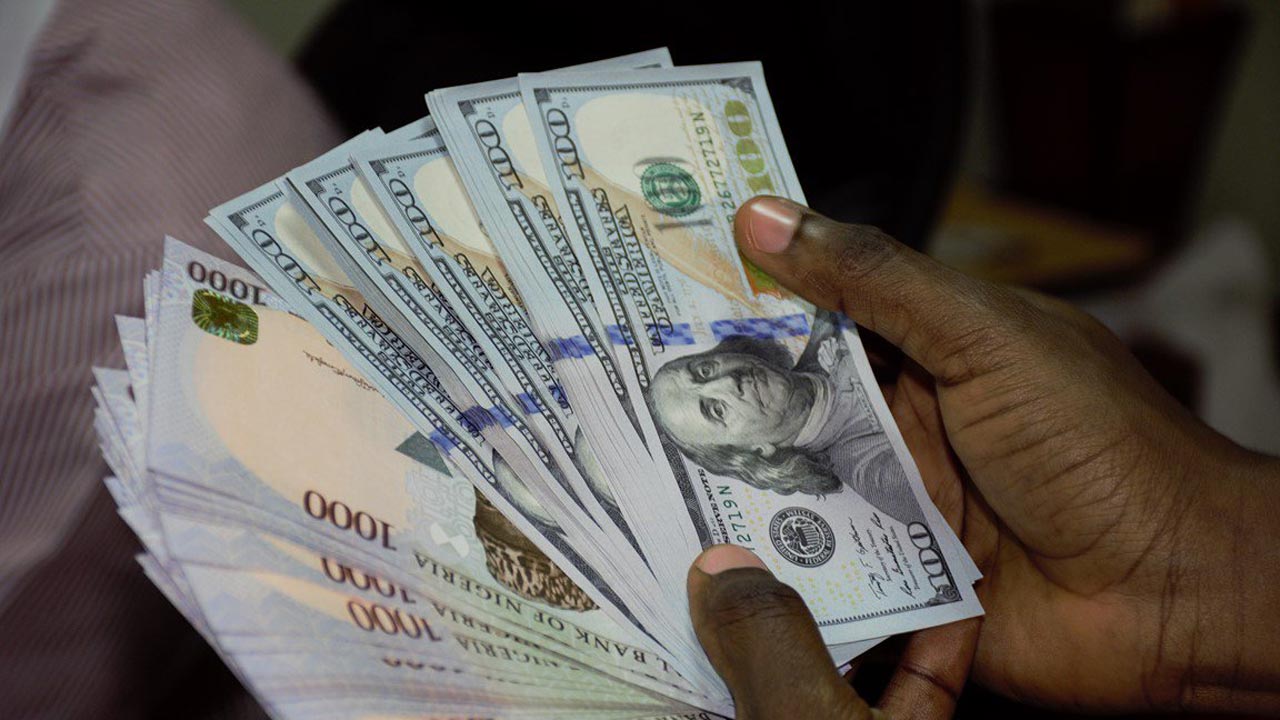Business News
Naira records N100 gain, now N840/$ in parallel market

The Naira experienced a significant upswing of N100, reaching a closing rate of N840/$ at the parallel market in Lagos yesterday. However, in the Abuja markets, it concluded at a lower rate of N850/$, indicating a 9.57% surge compared to the rate observed on Tuesday.
Meanwhile, at the Investor and Exporter (I&E) window, which is the official market, the Naira concluded at N759 to the dollar, generating an approximately N81 premium when compared to the parallel market. The I&E window recorded a turnover of $61 million.
According to Bureau De Change operators located in Wuse Zone 4, Abuja, the Naira began the day at N940/$ and progressively appreciated to its current rate. A trader named Ibrahim Bakori attributed this unforeseen appreciation to a meeting between President Bola Tinubu and Acting CBN Governor Folashodun Shonubi.
Another Forex dealer, Nura, expressed surprise at the notable decline of the dollar in the parallel market. Similar to Bakori, Nura believed that the mentioned meeting between President Tinubu and Shonubi suggested an impending significant development in the Forex market.
In response to reports that the CBN might inject more dollars into the market to curb the Naira’s depreciation, financial expert Dr. Victor Adoji advised caution, highlighting the existing demand for the dollar outside the Deposit Money Banks (DMBs) as a factor that needs to be considered before any further releases.
Garuba Sarki, a Bureaux De Change (BDC) trader based in central Lagos, noted that many speculative dealers are apprehensive about purchasing dollars currently due to concerns about potential losses. He anticipated the Naira to continue its rebound until a convergence between the official and parallel market rates is achieved.
Dr. Aminu Gwadabe, the President of the Association of Bureaux De Change Operators of Nigeria (ABCON), suggested that the government should enhance financial intelligence to track individuals with proceeds of corruption, as they often exert pressure on the forex market through manipulative actions.
Richard Obire, former Executive Director of Keystone Bank Limited, emphasized Nigeria’s heavy dependence on imported goods and services and the capital outflows driven by corruption as hindrances to Naira stability. He proposed measures such as addressing insecurity affecting food production, suspending government consumption expenditures that require hard currencies, and prioritizing refinery turnaround maintenance to reduce forex needs.
The Central Bank of Nigeria (CBN) had previously unified the exchange rate in June and abolished multiple exchange rates, causing a 40% drop in the Naira rate at the official market. The challenge of dollar supply has impeded the convergence of official and parallel market rates.
-
Society News3 years ago
Jamaican man beheads wife after finding out their 6 kids are not his
-
Society News5 years ago
EXCLUSIVE: The Complete Story of Dolapo Awosika, John Fashanu and Prophet Kasali Sex Mess
-
News2 years ago
Breaking: Ex-Police IG, Tafa Balogun Dies
-
News4 years ago
Pastor Osagie Ize-Iyamu, His Membership Of Secret Cult, And Other Issues Touching On His Public Credentials Examined by Barr. PATRICK I. BIOSE
-
News4 years ago
BREAKING: Ajimobi’s daughter-in-law blast Gov. Makinde, says gov can’t surpass ex-Oyo gov
-
News4 years ago
BREAKING: 2 arrested as NAF begins investigations into Tolulope’s death
-
News4 years ago
BREAKING: Police take over Edo House of Assembly as APC, Oshiomhole move to seize control
-
Crime4 years ago
Exclusive: Female Aide Fingered In Oko Oloyun’s Murder + Banking Transactions That Nailed Husband
Notice: Undefined variable: user_ID in /var/www/first2023/wp-content/themes/firstweekly/comments.php on line 48
You must be logged in to post a comment Login